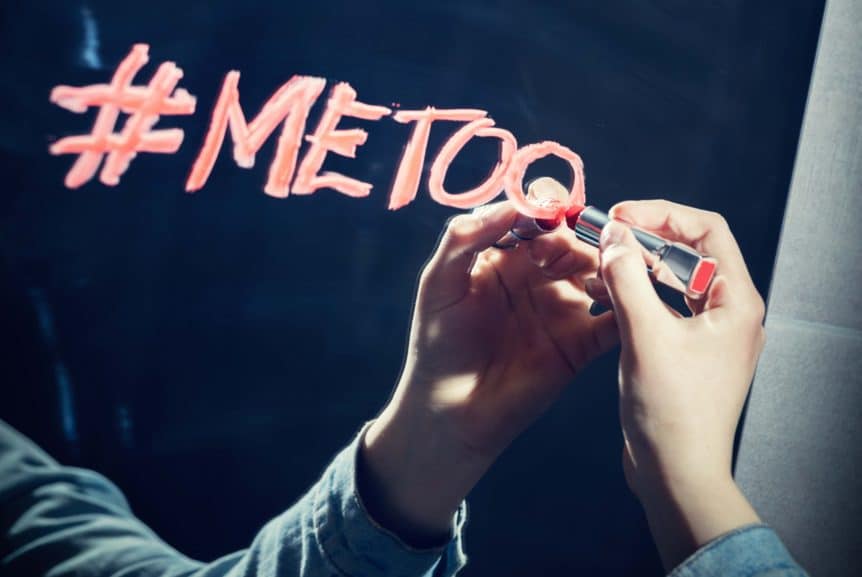Recently I had a conversation about work with a friend that gave me pause. During our discussion, we came to the topic of the changing dynamics in the workplace in light of the #MeToo movement. My friend, let’s call her Nancy, said something that initially left me bereft of a response. Nancy felt that the movement was creating a negative sense of victimhood. That women who were sharing stories from 10, 20, or even 30 years ago were perpetuating the view of women as victims.
I took a moment to collect my thoughts. My opinion was the polar opposite of Nancy’s, yet in that moment, I became curious. Why on earth did Nancy feel this way? She had worked her entire life and climbed the ladder to an executive career. I was also aware that she had experienced sexual harassment in many forms over the years. So why?
Nancy’s Life Experience
Nancy told me she felt that by the time young women entered the workplace, they should already have acquired the skills to deal with sexual harassment. She had. Therefore, she never felt troubled by sexual harassment and would turn it off with humor or, humor failing, with straight talk. Nancy had grown up in a situation where her male family members would push her until she learned to push back. Learning to respond to sexual harassment was de rigueur in her household.
An Alternate Universe
In spite of my shock, I found Nancy’s perspective enlightening. It was important for me to understand her thought process on a subject that is fervid to many. As I shared my very different life experience, we were able to have a deep discussion about the #MeToo movement. In contrast to Nancy, my male family members – both immediate and extended – treated women with respect and courtesy. There was zero tolerance for any form of harassment or bullying. Consequently, I had no experience to draw upon when I encountered harassment in the workplace. Unlike Nancy, I had no idea what to do, how to respond, who to tell, or, most important, how to make it stop.
Understanding and Convergence
Thankfully, Nancy and I have a mutual respect for one another, and we could each better understand the other’s viewpoint. It had never occurred to Nancy that many women have no clue as to the best course when faced with sexual harassment. It helped her visualize why sharing our stories and having a conversation about our experience is so important. It’s not about playing the victim. It’s about transparency and a seismic cultural shift.
When I first encountered harassment in the workplace, I needed the training and tools to appropriately respond to a difficult and stressful situation. I needed to learn certain skills and acquire the effective means to establish a safe working environment. #MeToo is changing the workplace dynamics by illuminating sexual harassment and driving organizations to take action. For far too long, companies have relied on “words only” policies surrounding workplace harassment. Not only have organizations systematically looked the other way, they have continued to promote serial abusers.
The #MeToo era has forever changed the landscape. It has empowered women to collectively raise their voices and demand that organizations take a hard look at their policies, processes, and commitment to zero tolerance. Companies are reexamining their culture to provide transparency and to be fully vested in achieving and maintaining a safe work environment for all employees.
Reset Your Mindset
My conversation with Nancy demonstrates the ability to break down barriers and find common ground when each party is actively curious and listens to a divergent perspective. We find answers and connections in what initially appeared to be polar opposites. When confronting these situations as individuals, or talent managers, start with respect. Respect is the foundation of sharing, learning, and growth.
Take a moment to pause, consider, and reset your mindset. Actively listen and hear the other person’s perspective. Draw them out as to why they feel that way and establish emotional reciprocity. Ask them to share how they want and expect their daughter, sister, mother, or girlfriend to be treated at work. Do they believe that everyone has the right to a safe workplace? Courteous dialogue provides the opportunity for a paradigm shift and compassion for different experiences. We should all be joined together in our celebration of this long-overdue transition and rejoice in the application of high behavioral standards at work. It’s a vital step forward for the dignity and respect all workers deserve.

Lynn Whitbeck is the co-founder and President of Petite2Queen. She is focused on identifying and evaluating opportunities for women at work, helping them define their personal roadmap. She dedicates herself to delivering tools and insights, embracing visualization of the big picture, and identifying and implementing the minutiae of detail. Lynn aims to share lessons learned along her journey and enable positive uplift for women.


Comments 1
This is the most thought-provoking, insightful and thoughtful article on the MeToo movement I’ve read. Thank you for sharing, Lynn!